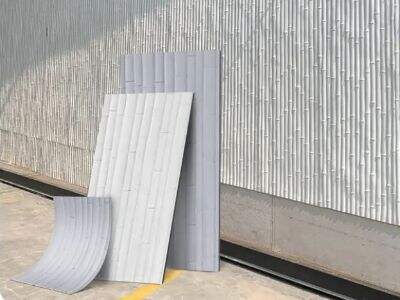Batu lembut adalah jenis batuan yang boleh disebabkan oleh pelbagai alam geologi yang berbeza. Lembut dan patung: dikatakan bahawa batu ini boleh dengan mudah dipahat dan diubah menjadi mana-mana bentuk atau bentuk. Hari ini, kita akan mengetahui lebih lanjut tentang apa batu lembut yang dimaksudkan oleh Eco-Arch, ciri-cirinya yang utama dan mengapa ia sangat menguntungkan bagi manusia melalui artikel ini.
Apa yang Membentuk Batu Lembut?
Sebongkah batu yang mudah terdiri daripada julat dan bahagian lain seperti mineral pelbagai, zarah tumbuhan, pecahan haiwan atau cebisan dari kisah-kisah yang dikenali bergantung kepada batu induknya yang telah mempengaruhi ia. Bersama-sama, mereka menjadikan batu ini apa yang ia adalah. Batu lembut adalah lembut kepada rabaan, boleh diukir dengan mudah dan mempunyai lubang kecil yang membantu mengekalkan air. Oleh itu, ubah batu lembut kerap digunakan dalam pembinaan rumah atau monumen dan untuk mencipta patung yang menakjubkan.
Batu Lembut — Ciri-ciri Perlu
Batu lembut yang mana simpanan boleh dikenal pasti -- ciri ini merujuk kepada kelembutan batu. Mereka sangat mudah diukir oleh pelukis dan pengukir yang membantu mereka mencipta pelbagai saiz muka. Batu lembut tidak hanya mudah diukir, tetapi ia juga boleh dilengkungkan dan diberi maklumat tanpa patah. Ini menjadikannya sesuai untuk digunakan dalam pembuatan patung dan jenis seni lain di mana butiran perlu direplikasi.
Salah satu sifat penting batu lembut adalah ia mempunyai lubang kecil, dan akibatnya, ia juga menyerap air (dan cecair lain) juga. Kekuatan ini juga memberikannya kelebihan, kerana walaupun boleh menjadi masalah dan cuaca boleh menghancurkannya dengan masa. Seperti, terdapat beberapa jenis perantaraan. panel batu lembut digunakan dalam sistem penapisan dan susunan pembersihan udara untuk bangunan. Kemampuan untuk menyerap air itulah yang membuat batu lembut berguna dalam keadaan tertentu.
Apa yang Membentuk Batu Lembut?
Pecahan longgar, serpihan yang hancur biasanya terbentuk dari batuan lain atau potongan kecil yang terpisah dari batu utama. Jenis batu lembut yang berbeza mengandungi bahagian yang berbeza; oleh itu, gaya spesifik yang ditemui boleh bervariasi bergantung pada faktor tertentu seperti jenis dan di mana ia dihasilkan. Batu kapur adalah contoh batu lembut yang terdiri daripada kalsium karbonat sebahagiannya. Terdapat juga jenis batu lembut lain, seperti pasir batu dan letek yang semuanya mempunyai ciri sendiri bergantung kepada campuran dengan mineral atau bahan tumbuhan.
Kesimpulan
Batu lembut adalah oleh itu jenis batu yang unik yang telah berguna kepada manusia dalam banyak cara selama ribuan tahun. Ia lembut dan boleh diukir menjadi patung-patung yang indah, serta bangunan-bangunan yang cantik. Ciri-ciri batu lembut, serta apa yang membentuknya pada peringkat asas, memberi kita sedikit gambaran tentang keindahannya, dan pentingnya kepada kegunaan harian kita. Mempelajari batu lembut memperkenalkan nilai besarannya dalam dunia seni dan pembinaan, serta membuat kita sedar akan beberapa bahan hebat yang diberikan oleh alam sekitar kita.
 EN
EN
 AR
AR BG
BG HR
HR DA
DA NL
NL FI
FI FR
FR DE
DE EL
EL HI
HI IT
IT JA
JA KO
KO NO
NO PL
PL PT
PT RU
RU ES
ES SV
SV TL
TL ID
ID VI
VI HU
HU TH
TH TR
TR FA
FA MS
MS BE
BE BN
BN LO
LO LA
LA MY
MY KK
KK TG
TG UZ
UZ LB
LB


